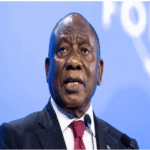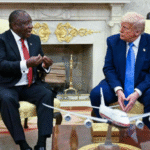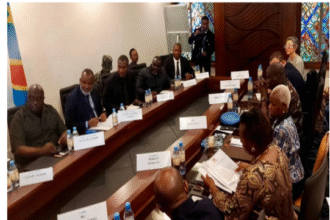By Simba Munyua
KAMPALA, UGANDA – Despite a January ruling by the Supreme Court declaring military tribunals for civilians unconstitutional, Uganda’s parliament has passed a controversial bill authorizing the practice, sparking outrage from opposition figures and human rights groups. The legislation allows civilians to be tried in military courts, a move critics see as a blatant attempt to silence dissent and suppress opposition.
President Yoweri Museveni’s government has long defended military trials for civilians, citing national security concerns and the need to combat alleged threats to state stability. Military spokesperson Chris Magezi stated the new legislation will “deal decisively with armed violent criminals, deter the formation of militant political groups that seek to subvert democratic processes, and ensure national security is bound on a firm foundational base.”
The Supreme Court’s earlier ruling had specifically stated that military tribunals lacked the legal competence to try civilians and failed to meet fair trial standards. However, lawmakers proceeded with the bill, igniting fierce debate and condemnation.
General Muhoozi Kainerugaba, head of the military and son of President Museveni, celebrated the passage of the bill in a post on X, stating, “Today, you proved you are fearless patriots! Uganda will remember your courage and commitment.”
Kainerugaba has faced scrutiny recently after admitting to holding a missing opposition activist in his basement earlier this month and threatening violence against him, raising serious concerns about human rights violations.
Opposition MP Jonathan Odur voiced strong opposition to the bill in parliament, calling it “shallow, unreasonable and unconstitutional.” He maintained, “There’s no legal basis to provide for the trial of civilians in the military court.”
The practice of trying civilians in military courts has been a longstanding issue in Uganda. In 2018, pop star-turned-opposition-leader Bobi Wine was famously charged in a military court with illegal possession of firearms, charges that were later dropped. This and other similar cases have fueled accusations that the government uses military courts to persecute political opponents and critics.
Critics argue that the new legislation solidifies a worrying trend of repression and undermines the rule of law in Uganda. The move is expected to further escalate tensions between the government and opposition groups, raising concerns about the future of democratic freedoms in the country.









